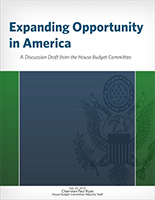| Rep.
Paul
Ryan
Presents
Ideas
to
Fight
Poverty ...back > |
||
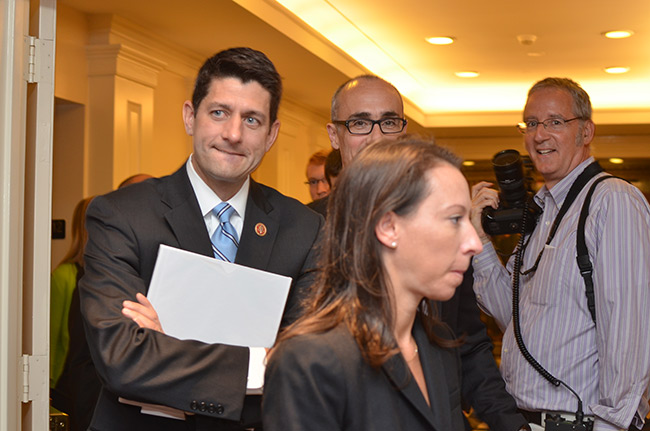 |
||
| July 24, 2014 - Rep. Paul Ryan
(R-WI), chairman of the House Budget Committee, unveiled a far-reaching
set of ideas to overhaul the federal government's ant-poverty efforts
in a speech at the American Enterprise Institute. [prepared remarks] Ryan has
focused considerable attention on the problem of poverty over the past
year. Working with Bob Woodson, president of the Center for
Neighborhood Enterprise, he made a series of quiet visits to low income
communities and his Budget Committee has held five hearings on poverty
since July 2013. Ryan's proposals, which encompass six major
elements, are contained in a 73-page discussion draft "Expanding
Opportunity in America." First, and most controversial, is the Opportunity Grant pilot project, which would allow states to consolidate up to 11 forms of federal aid into a single payment. Ryan emphasized that the Opportunity Grant is not exactly a block grant, as there would be clear criteria to ensure that the funds are used to counter poverty and that participating states are achieving measurable success. Other elements include expanding the Earned Income Tax Credit, education reforms, streamlining job training programs, criminal justice reform, attention to regulations that particularly affect low-income families, and finally, more use of data in policy making. |
||
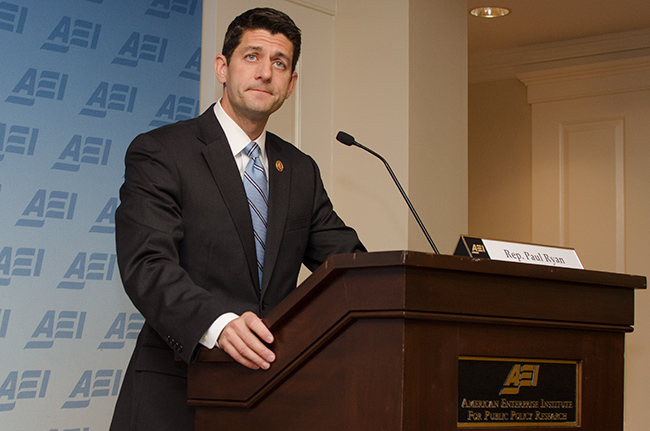 |
||
| After Ryan outlined his
proposals he participated in a panel with Robert Doar of AEI, Ron
Haskins of the Brookings Institution, Stuart Butler of the Heritage
Foundation, and Bob Woodson of the Center for Neighborhood Enterprise. |
||
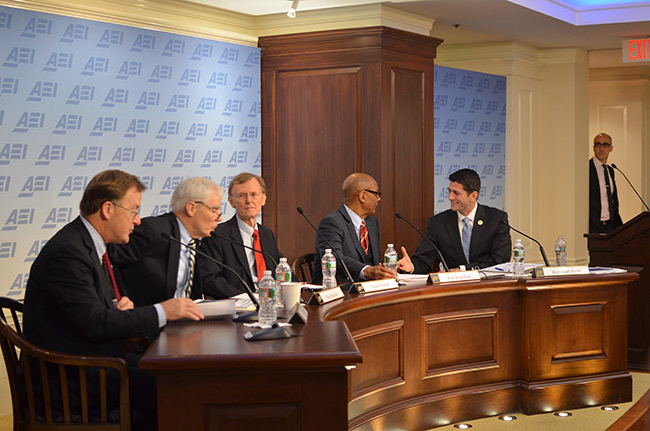 |
||
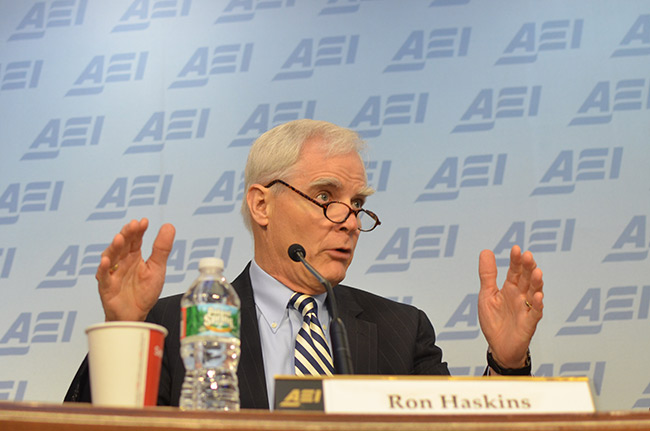 |
||
| Ron Haskins, a senior fellow in
economic studies program and co-director of the Center on Children and
Families at the Brookings Institution, opened the discussion by
declaring, "First, it’s a sweeping proposal. This is worthy of a think tank. It’s full of references to social science. Things are justified, are explained. It’s a spectacular document. And I would emphasize sweeping: opportunity grants, EITC for childless workers, education at all levels, criminal sentencing and other prisoner reforms, regulatory reform, and program evaluation. I have not seen anything like this from an individual member in many years introduced in Congress." Haskins described it as "a bipartisan, resonable proposal." "If we take the Senate and the Senate introduces something along these lines and both the House and the Senate pass it, we can put something on the president’s desk that will become law," Haskins said. |
||
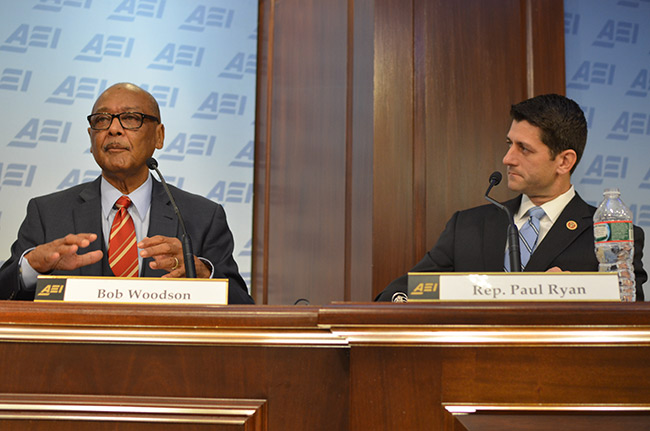 |
||
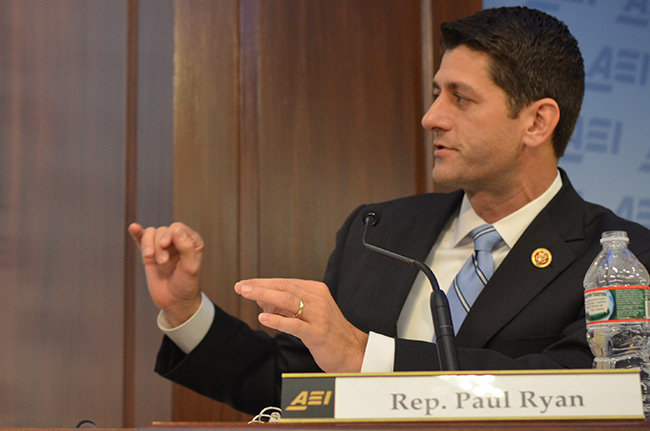 |
||
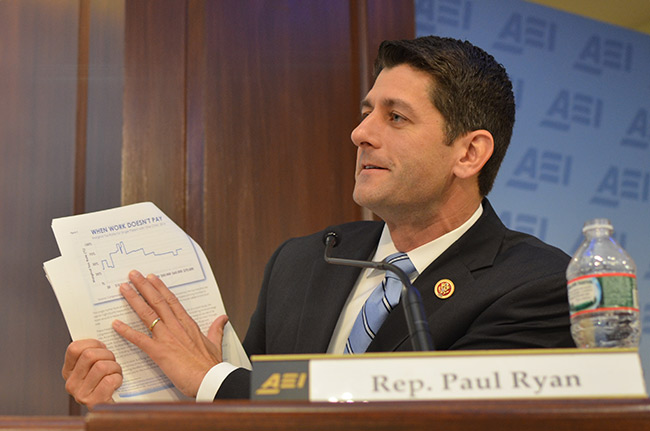 |
||
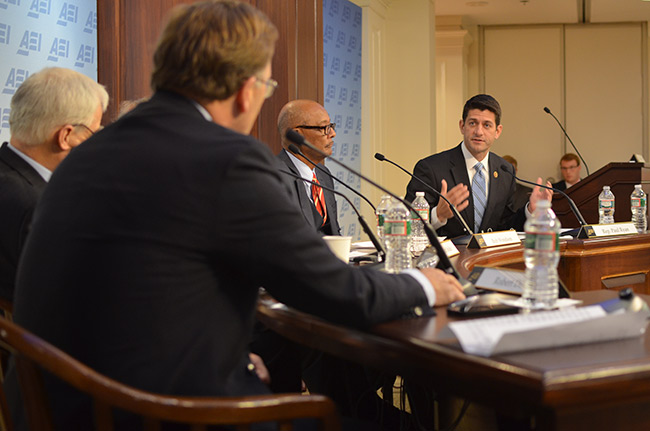 |
||
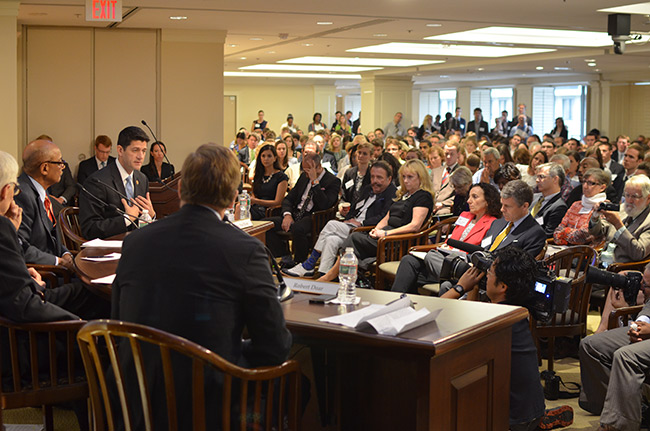 |
||
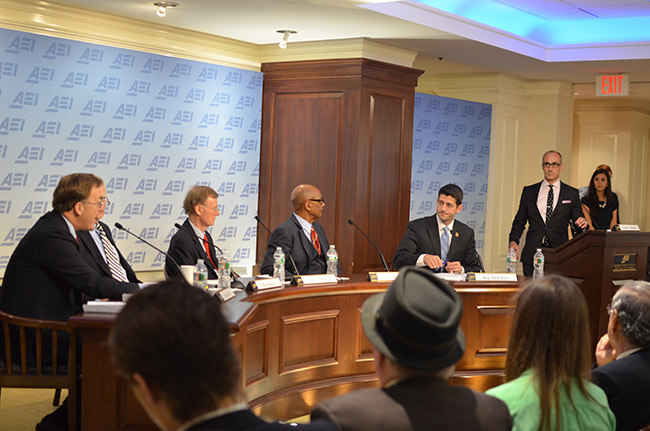 |
||
|
||
| back > |

